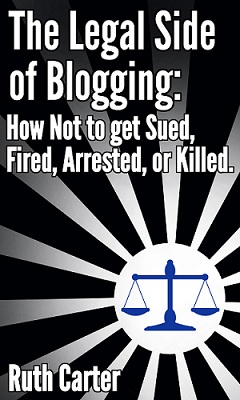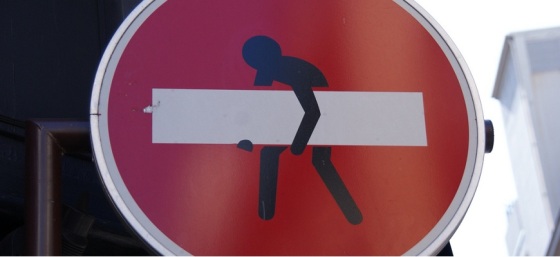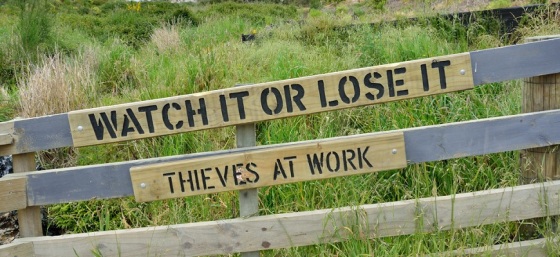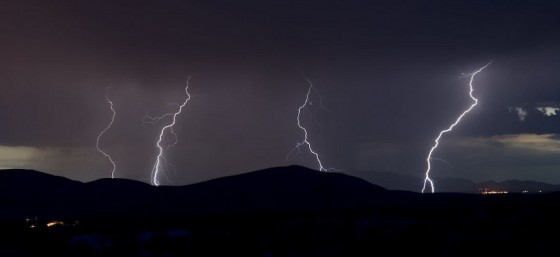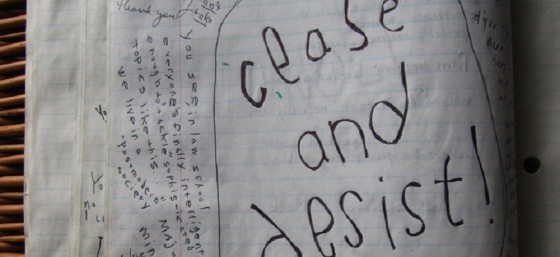
Photographers need to be mindful of the possibility that some people may use their photos without permission. People will pull images to use on their website and social media posts. Additionally, there are people who think they have rights to a photo merely because they’re in it. I’ve even heard of hair and makeup artists who take photos from the shoots they have worked on to use them in their portfolio.
This issue is compounded by the fact that there is inaccurate information about photo use on the internet. Some sources assert that you can use any photo you find on the internet as long as you give an attribution and a link to the original. They think they’re giving you free publicity, but what they may be doing is committing copyright infringement and telling you about it.
Start with the End in Mind
When I work with clients who believe their copyright has been violated, one of the first question I ask is,
How do you want this to end?
Knowing what the client wants as a result of my work tells me what avenue for recourse they’re interested in pursuing.
To maximize the likelihood of achieving your desired outcome, it’s best to decide before your photos are stolen how you want to respond to the alleged infringer so you can be prepared in advance for when it happens.
Always Respond When Someone Uses Your Photo Without Permission
You don’t set the precedent that people can use your photos without a license. If you let others use your work and then you want to assert your rights against another infringer, the infringer could point to your past behavior and argue that since you’ve allowed others to use your images without repercussions, that this new infringer should be treated the same.
(This is why you hear about companies sending strongly worded cease and desist letters to minor infringers. They have an obligation to protect their intellectual property.)
There are five ways you can respond when someone steals your photo:
Option #1: Grant Permission
If you’re ok with someone’s use of your image, you can grant them permission after the fact. It can be something simple like
Hi there. I noticed you’re using my photo for XYZ. I’m ok with uses like this, but in the future, you need to ask my permission in advance. I grant you permission for this use.
Option #2: Cease and Desist Letter
This is a letter from you (or your lawyer) to the suspected infringer that informs them of the copyright rights they violated, directs them to remove the image by a specified date, and tells them what you’ll do if they don’t comply. Be ready to follow through on whatever you threaten/promise in your letter, or you’ll lose credibility.
These are sometimes referred to as the “nastygram,” especially when it’s written by a lawyer and the client’s goal is to put the fear of god in the person so they comply. There is no rule that says you can’t send a letter that says,
I love that you love my photo, but you need to remove it by . . .
Option #3: DMCA Takedown Notice
DMCA stands for Digital Millennium Copyright Act. This option is only available in situations where your photo and the infringement of it are both on the internet. Instead of sending a cease and desist letter to the person who stole your photo, you send a takedown notice to the company that hosts the website where the infringement is occurring. Some social media platforms have a form on their site for submitting a takedown notice with designated spaces for all the information you’re required to include in a DMCA takedown.
Option #4: Send a Bill and a License
There is at least one photo licensing company that is notorious for doing this, but any photographer can send (or have their lawyer send) a letter to the suspected infringer that says,
By using my photo, you’ve agreed to my licensing terms. Here’s a copy of the license and your bill!
If you want to use this option, it’s ideal if you have your licensing terms or at least information about licensing on your website.
Option #5: Sue for Copyright Infringement
This option requires the most work in advance compared to the other options because you must register the photo’s copyright with the U.S. Copyright Office in order to be eligible to sue for infringement. There are time constraints in which you have to register you work in to be eligible for statutory damages, including attorneys’ fees. Additionally, your photo has to be stolen by someone who can afford to pay the damages, otherwise you may never collect (and you’ll likely have to pay for your attorney yourself).
If registered your photo too late, you can still sue, but you can only get your actual damages, and you have to pay your attorneys’ fees. Most of the time, in this situation, it’s not worth it to sue because you’ll spend more on your attorney than what you’d get in damages from the court.
What’s the Right Option to Protect Your Photography?
You have to make that decision yourself. Decide in advance how you want to respond when someone steals your photo and plan accordingly.
Your strategy for responding to suspected copyright infringement can include more than one of these options – such as sending a cease and desist letter yourself and if that doesn’t work, then have your attorney send one. Some people are more motivated to comply when they see the law firm’s letterhead.
Regardless of your strategy, it’s best to speak with your attorney in advance and consult them when dealing with someone who’s using your photos without permission. There have been many times that I’ve written the cease and desist letter for my client to send that included the sentence,
I hope we can resolve this without having to get lawyers involved.
Lights Camera Lawsuit
There’s always a need for quality legal information for photographers. That’s why I created an online course called Lights Camera Lawsuit: The Legal Side of Professional Photography to address photographers’ most important questions. I want you to feel secure in your business, confident in the way you operate day-to-day, knowing that you’ve set yourself up to get paid what your worth without incident.
At $497, the course contains nearly six hours of legal information you can immediately apply to your business. That’s less than what I charge for two hours of legal work for clients!
Please subscribe for more information and to make sure you don’t miss out on any special offers or discounts.



